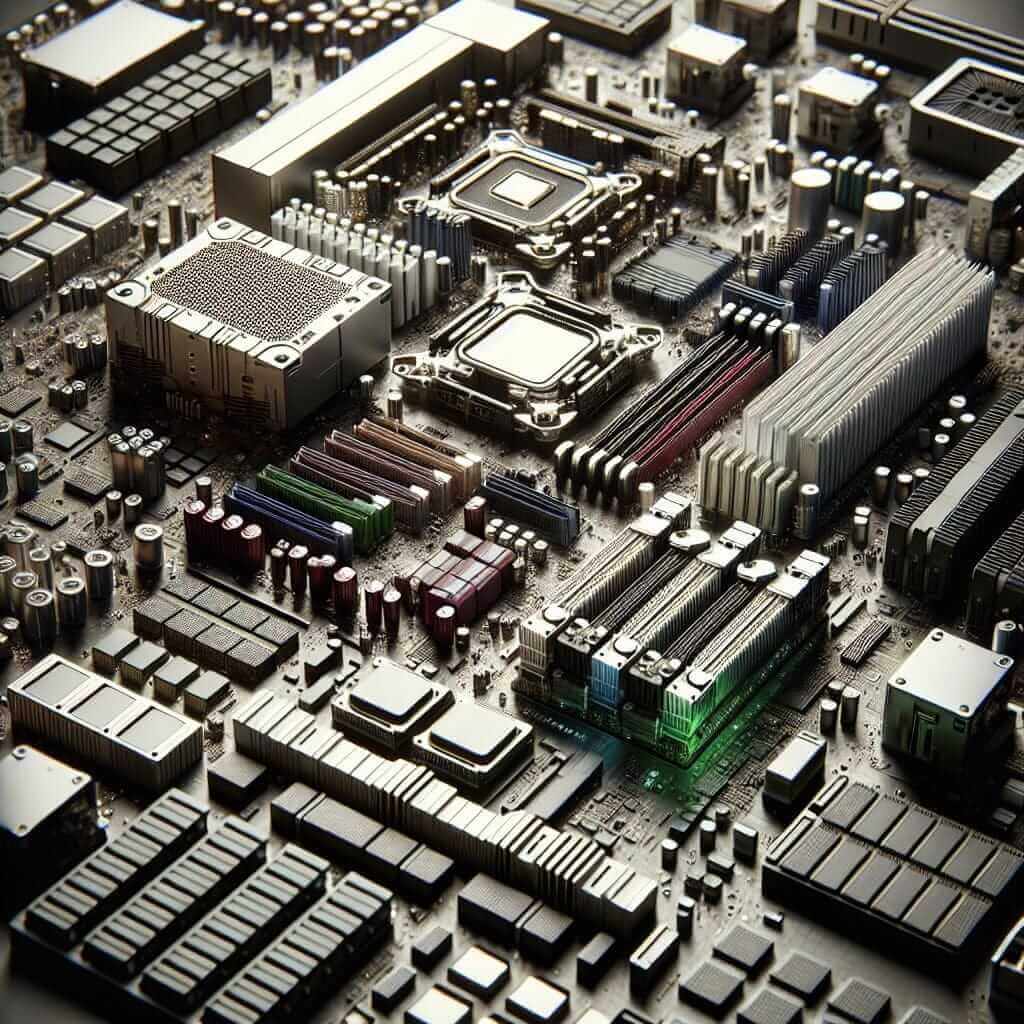The term “hardware” is relatively common, even appearing in the IELTS exam, particularly in the Listening and Reading sections. Understanding its meaning and usage can be beneficial for those aiming to achieve a high IELTS score. Let’s delve into the world of “hardware” and explore its relevance to your IELTS preparation.
Here are some synonyms for “hardware”:
- Equipment: (noun) /ɪˈkwɪpmənt/ the necessary items for a particular purpose.
- Example: The school needs to buy new sports equipment.
- Apparatus: (noun) /ˌæpəˈreɪtəs/ the technical equipment or machinery needed for a particular activity or purpose.
- Example: Firefighters needed breathing apparatus to enter the burning building.
- Machinery: (noun) /məˈʃiːnəri/ machines as a group, especially large ones.
- Example: The machinery in a factory is often very loud.
- Gear: (noun) /ɡɪr/ a range of equipment or tools needed for a particular activity.
- Example: We need to buy some new camping gear.
And an antonym:
- Software: (noun) /ˈsɒftweər/ the programs and other operating information used by a computer.
- Example: I’m having problems installing this software on my computer.
Demystifying “Hardware”: Meaning and Usage
What is “Hardware”?
In its most common sense, “hardware” refers to the physical components of a computer system or other electronic devices. Think of the parts you can actually touch, such as the keyboard, monitor, mouse, and the internal components like the motherboard, RAM, and hard drive.
Applying “Hardware” in Context
Beyond computers, “hardware” can also refer to tools and equipment used in various fields. For instance:
- Construction hardware: This includes tools like hammers, saws, nails, and screws.
- Kitchen hardware: This encompasses items such as pots, pans, cutlery, and utensils.

“Hardware” in the IELTS Exam
While “hardware” might not be a high-frequency word in the IELTS, it can appear in various contexts, especially in topics related to:
- Technology: Discussions about computers, smartphones, or the impact of technology on society.
- Manufacturing and Industry: Passages describing industrial processes, factories, or the production of goods.
Mastering “Hardware” for IELTS Success
Listening Section:
- You might encounter “hardware” in lectures or conversations about technology trends, computer science courses, or even discussions about repairing electronic devices.
- Example: “The professor explained that the hardware of a computer system plays a crucial role in its overall performance.”
Reading Section:
- Articles about technological advancements, the history of computing, or the manufacturing process of electronic devices might use the term “hardware.”
- Example: “The invention of the microchip revolutionized the computer industry, leading to significant advancements in hardware miniaturization and processing power.”
Writing Section:
- While less likely to be a central theme, you could use “hardware” when describing a technological process or comparing different types of equipment.
- Example: “The company invested heavily in upgrading its manufacturing hardware to increase production efficiency and meet the growing demand for its products.”
Collocations and Idioms
While there aren’t many idioms directly using “hardware”, here are some collocations that can be handy:
- Computer hardware: Referring to the physical parts of a computer system.
- Heavy hardware: Used to describe large, powerful machines or equipment.
- Upgrade hardware: To improve or replace existing hardware components.
- Hardware failure: A malfunction or breakdown of a hardware component.
- Hardware store: A shop selling tools, building materials, and other hardware items.
Conclusion
Adding “hardware” and related terms to your IELTS vocabulary can prove beneficial, particularly in technology-related contexts. By understanding its meaning, usage, and potential appearance in different sections of the exam, you can approach the test with greater confidence and enhance your ability to comprehend and respond effectively to a wider range of IELTS questions. Remember to practice using “hardware” in various contexts to solidify your understanding and improve your fluency.